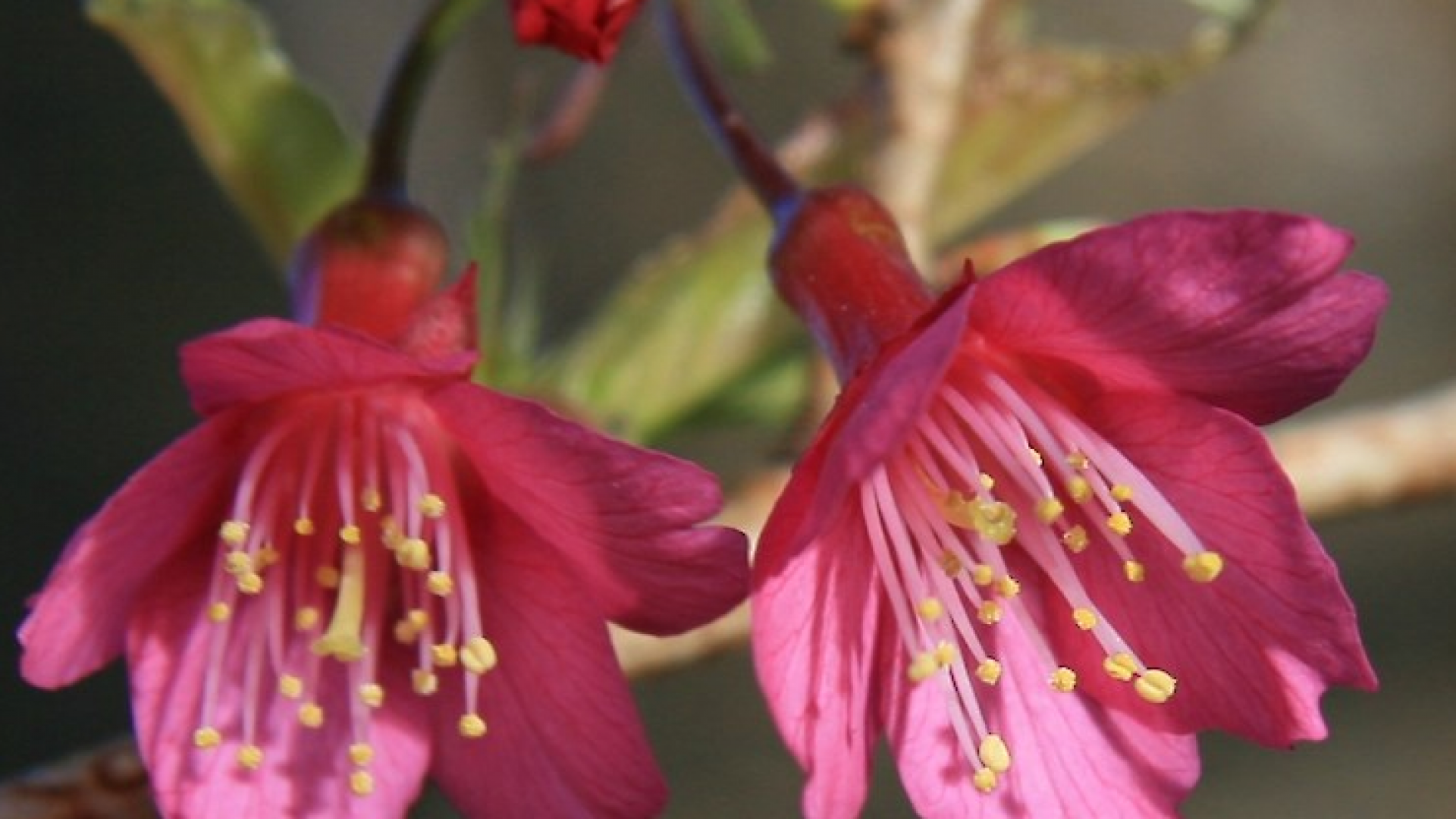Taiwan cherry – A pretty pest
25/08/2021 11:28am
Taiwan cherry (Prunus campanulata) is an invasive weed that poses a real threat to our environment.
Its seeds are easily spread by birds, and it can form dense stands in the landscape, preventing regeneration of native species that provide all-year-round food and habitat for our native fauna and insects.
It has become a major pest plant in Aotearoa New Zealand and has the potential to cause problems comparable with old man’s beard, gorse and blackberry, if it is not brought under control.
Taiwan cherry is a deciduous tree that grows up to 10m in height. From late July through to early September, mature trees produce thousands of deep pink flowers that attract pollinators such as bees and tūī. Its leaves are 5-17cm long, staggered, serrated, and thin and it has shiny, scarlet fruit (1cm in diameter) from October to December.
Taiwan cherry in the Nelson area
Taiwan cherry was officially given eradication status in 2019, making it illegal to sell, propagate or distribute it in the Nelson Tasman region.
This species is a high biosecurity priority, and Nelson City Council is offering free removal if you have this tree on your property. Council contractors will be contacting landowners with known trees over the coming weeks to arrange tree removal.
What can you do?
Council is asking for the support and cooperation of the local community to achieve its goal of Taiwan cherry eradication, and we urge anyone who suspects they have it growing on their property to get in touch to arrange for the tree/s to be assessed.
It is important for the public to notify Council of sites where Taiwan cherry is growing, or has been planted in the past, as seedlings may have spread to neighbouring properties and reserves.
We appreciate that these trees are attractive and that they draw in birds and bees, but these benefits are far outweighed by the disastrous ecological impacts this species will have on our indigenous scrubland and forest ecosystems if left to spread. We recommend replanting with native species such as kōwhai, rātā or tī kōuka (cabbage trees) to benefit the local bird and insect population.
To report Taiwan cherry or to arrange an assessment:
(Please note: assessments may be delayed due to COVID-19 Alert Levels)
Contact Nelmac directly on 0800 635 622
Email us on nelson.nature@ncc.govt.nz
Or call Nelson City Council on 03 546 0200.
Go to our website for more information www.nelson.govt.nz/taiwan-cherry




